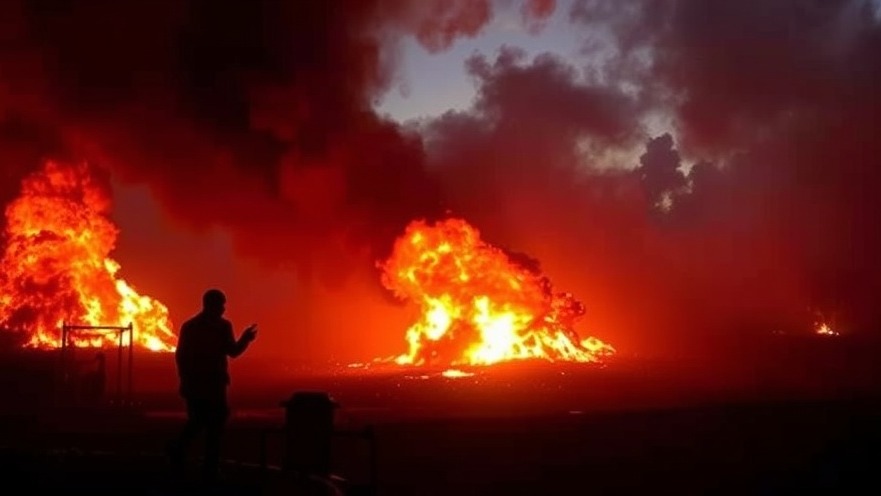
Understanding the Crisis: A Need for Deeper Investigation
The recent visit by President Bola Ahmed Tinubu to Benue State comes amid a backdrop of devastating violence that has claimed over 200 lives. This tragic event has sparked national outcry and calls for a thorough investigation into the underlying causes of the crisis affecting this region. Chairman of the Accord Party in Benue State, Benson Ajachi, contends that the government must first understand the real root of the violence before crafting solutions. His perspective highlights the need for an inclusive dialogue among various stakeholders to grasp the intricate dynamics at play.
In 'Tinubu Visits Benue After Mass Killings | 200 Dead, Urgent Calls for Justice', the discussion dives into the complexities of the crisis affecting Benue State, exploring key insights that sparked deeper analysis on our end.
Political Landscape and Responsibility: Who's Listening?
Ajachi argues that the government lacks a grassroots connection necessary for effective governance and conflict resolution. Many residents of the state feel marginalized, as their voices have often been silenced by political leaders focused solely on their party lines. In an environment where farmers and herders frequently clash, it is vital to go beyond superficial reconciliatory efforts. Real solutions will only emerge when leaders engage significantly with local communities to understand their grievances.
The Role of Traditional Authority: A Call for Unity
Significantly, the paramount traditional ruler's remarks during Tinubu's visit pointed to the potential political machinations contributing to the violence. His assertion that the attacks might stem from a well-planned agenda underscores the need for unity among traditional leaders, politicians, and community members. Such unity is essential for eliciting a comprehensive response to the crisis, moving beyond the political infighting that often characterizes discourse in Nigeria.
Counterarguments: The Complexity of the Narrative
While some argue that the crisis is driven primarily by a clash between herders and farmers, others, including public affairs analyst Zari Yu, stress that the situation is far more intricate. He posits that we are in the midst of a coordinated assault intended to dominate land and resources, where political interests may be at stake. Referring to past assaults, Yu articulates the urgent need to address the broader context of violence that transcends mere agricultural conflicts. The way forward involves addressing the systemic narratives that fuel these cycles of violence.
Future Predictions: Pathway to Stability or Continued Turmoil?
The ongoing violence and political responses to it are not merely short-term crises but could signify a longer-term pattern unless decisive actions are taken. The government's ability to prescribe meaningful solutions—including recognizing militant groups like Miyetti Allah as terrorists—could drastically reshape the security landscape in the region. Without such recognition, the prospect of peace remains elusive, and the ongoing humanitarian suffering could continue to escalate.
Actionable Insights for Stakeholders
Political leaders in Benue must engage directly with opposition parties to forge a consensus pathway for addressing the crisis. Such collaboration may lead to a multifaceted approach that includes establishing robust security measures, community engagement, and development initiatives designed to rebuild trust among affected populations. By fostering an environment where all parties can contribute to the discourse, the likelihood of achieving sustained peace increases.
Conclusion: A Call for Informed Engagement
The complexities surrounding the massacre in Benue State reflect broader issues of governance, security, and societal trust in Nigeria. The insights shared during the panel discussions around President Tinubu's visit underscore the urgent need for genuine dialogue that includes marginalized voices. Addressing these underlying issues with sincerity and collaborative action could open doors to healing and rebuilding, providing all stakeholders a much-needed pathway towards a stable future.
 Add Row
Add Row  Add
Add 


 Add Row
Add Row  Add
Add 

Write A Comment